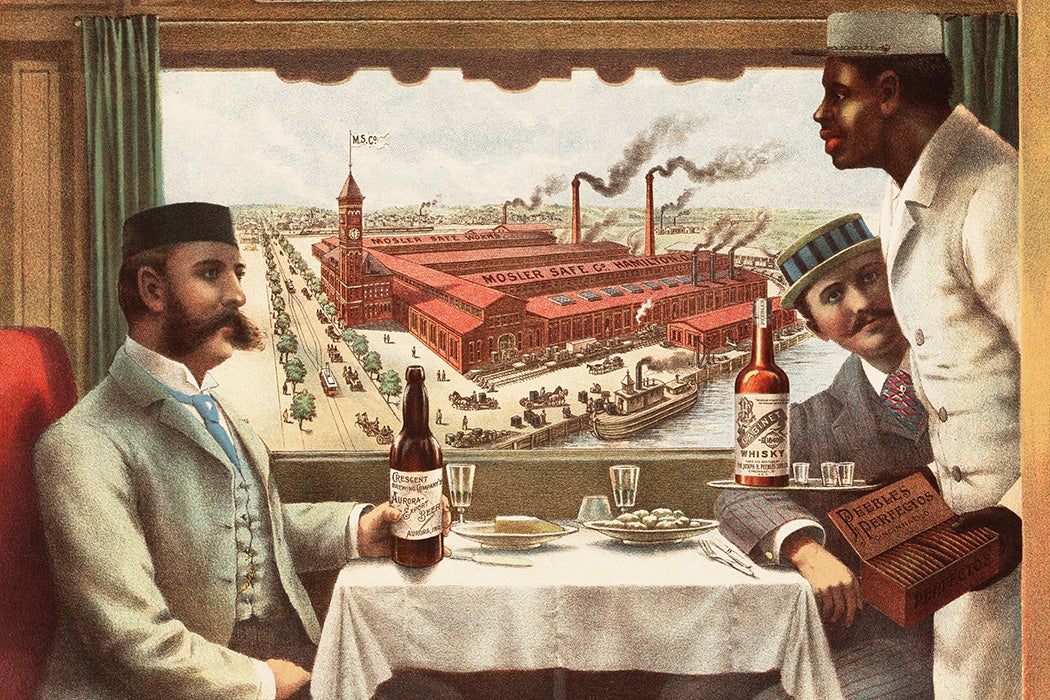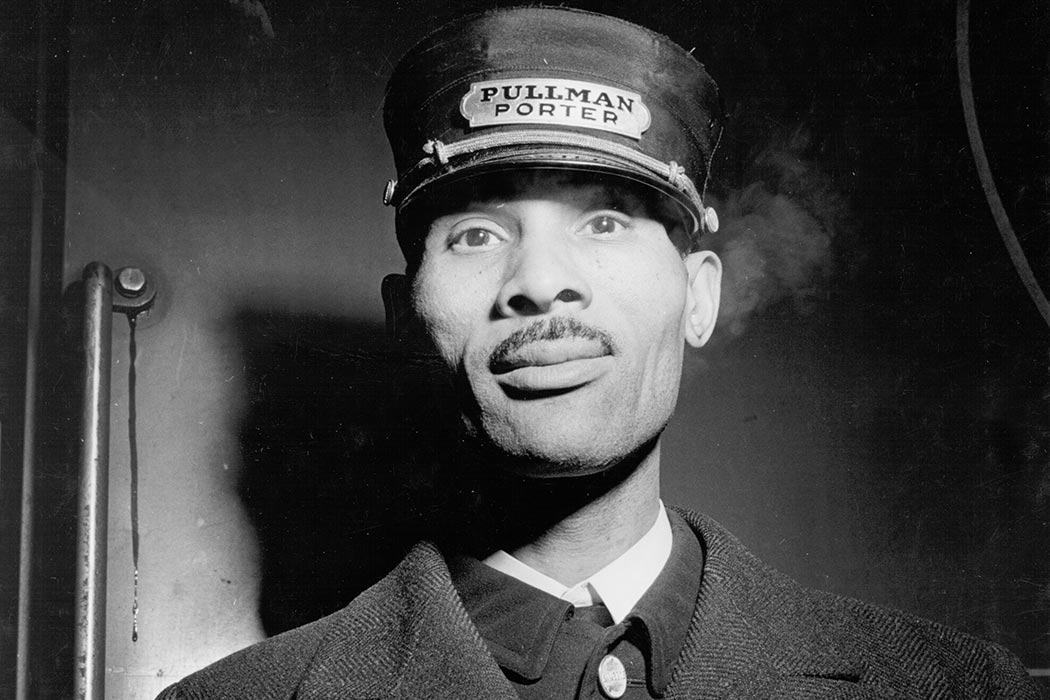John Henry Wilkins, a Pullman sleeping car porter on the Kansas City Special out of Jacksonville, Florida, disappeared from the train he was working on between 4:00 and 5:00 a.m. on April 5, 1930. His body was found 17 miles from the nearest scheduled stop in Georgia on that same morning. He had multiple injuries. His white Pullman jacket had been tied around his neck and a sapling. The corner ruled that his death was from “causes unknown.”
As historian Rosemary Pearce notes, the circumstances immediately raise the possibility of a lynching. Wilkins was Black, like virtually all Pullman porters of the day. This wasn’t the typical scenario of a lynching, however, so nobody could prove it was one—but then, nobody could—or would—ever show any reason for Wilkins’ death.
For liability reasons, the Pullman Company seems to have more thoroughly investigated Wilkins’s death than Georgia’s police. Pearce argues that the company’s 300-page file on Wilkins’s death, while not solving the mystery, “helps to uncover something else entirely: the distinctively precarious professional environment of the Pullman porter.” The confined space of a railroad car moving through Jim Crow segregation “was a uniquely hazardous site of racial interaction and negotiation.”
When George Pullman introduced his sleeping cars for luxurious long distance railroad travel after the Civil War, he hired formerly enslaved men to work as porters. “George’s Boys” eventually all came to be called “George,” regardless of their actual names, a racist custom that can be seen in movie train scenes from the 1930s. Pullman porters would mostly be Black men until the 1960s, the last year of that decade saw the company go out of business.
In the 1920s and 1930s, years after George Pullman’s death, his company was still the largest single employer of Black people in the country. Porters were essentially domestic servants: they carried luggage, prepared sleeping berths, shined shoes, ran errands, served food and drink, and minded children. A much smaller number of Pullman maids, Black and Chinese American women, were employed as well.
Pullman porter jobs were good enough to lift some porters’ families into the middle class, especially after the formation of the first Black union, the Brotherhood of Sleeping Car Porters in 1925. But the racial order of the day also made these jobs, which were physically challenging to begin with, especially demeaning, humiliating, and fraught with danger.
“The Pullman Company, as well as white passengers and crew,” Pearce writes, “applied emotional control to black porters that constituted a strand of oppression working alongside, but distinct from, more obvious forms of racial subjugation, such as segregation and job discrimination.”
More to Explore
The Historic Achievement of the Pullman Porter’s Union
Segregation existed everywhere, but it was law in the South, where it could be enforced by brutality and terrorism. Porters dreaded heading “through the tunnel” under the Potomac into Virginia because passengers became notably nastier in the South.
Taboos about Southern white women made the job particularly delicate since, Pearce writes, “the Pullman Company advertised its railroad service repeatedly using the image of [B]lack porter’s smile to establish expectations of their service.” And “failure to perform the anticipated smiles and difference could result in verbal or physical abuse from white passengers or crew.” (Not to mention endangering the porters’ tips, from which the majority of their compensation came.) But smiling too much to a white woman in the South was extremely dangerous. “The friendly emotional expression he was required to perform as part of his job was the same expression that could jeopardize his career and his safety,” Pearce writes.
Weekly Newsletter
Porters could be fired for so much as “annoying” a woman passenger. The Pullman Company’s on-train spies, called “spotters,” included white women working to entrap porters. “Insubordination” could result in porters thrown off the train by their white supervisors and marooned in what was essentially hostile territory. This was one of the theories about Wilkins’s death.
Segregation demanded physical separation of the “races,” but the job of a Pullman porter required blurring that separation. We’ll probably never know if John Henry Wilkins overstepped that very fine line after eleven years with a clean record. It was a line thousands of Pullman porters had to negotiate while working on the railroad all the live-long day during the decades of American apartheid.





![A Chelsea Pensioner, wearing a sprig of orange blossom [?] in his buttonhole, sipping a dish of tea. Engraving by J. Jenkins after M. W. Sharp, 1840](https://daily-jstor-org.bibliotheek.ehb.be/wp-content/uploads/2026/02/consuming_the_empire_alt_1050x700-600x400.jpg)


